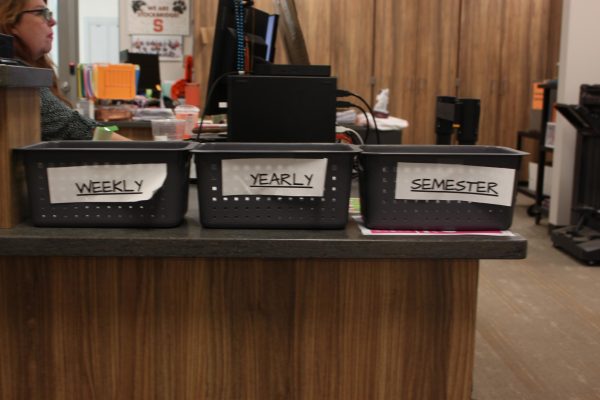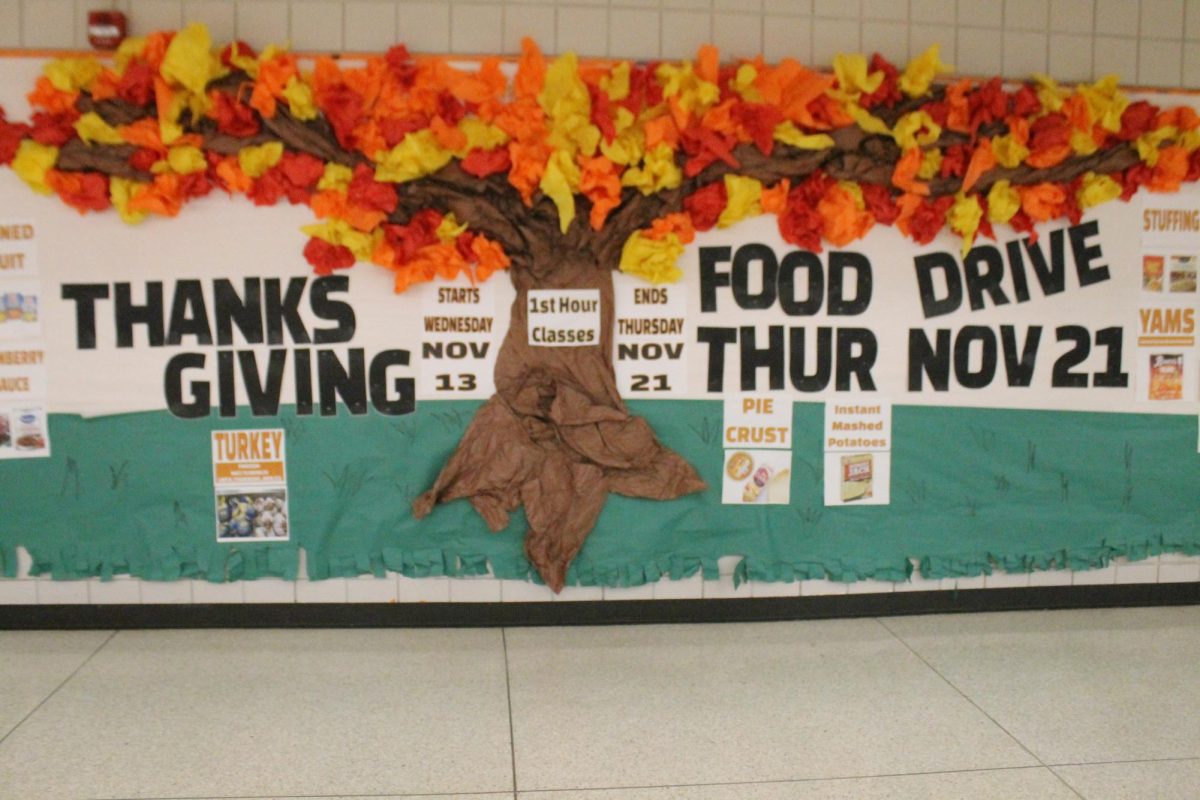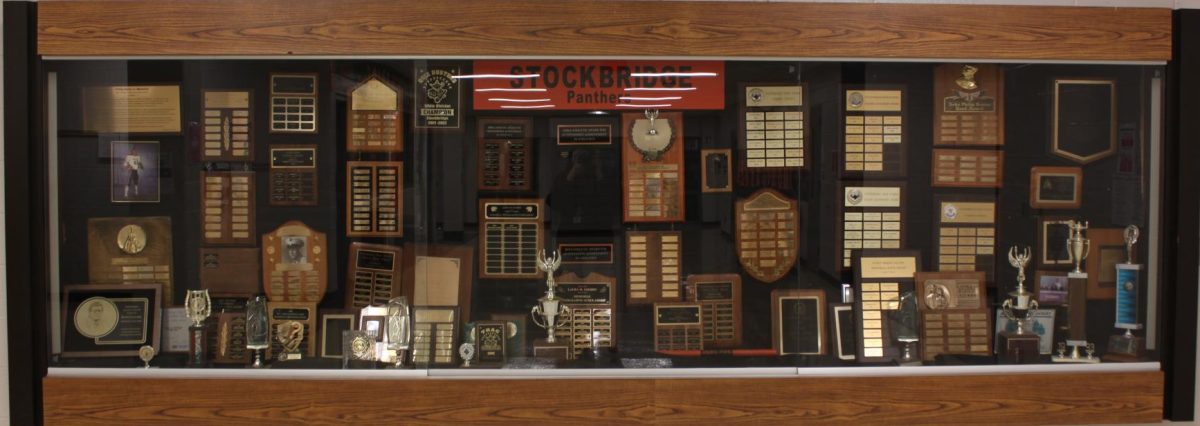 She is the cross country captain who has encouraged her teammates throughout difficult races, a member of National Honor Society who devotes time out of her personal life to volunteer in the community, and a Student Council representative who decorates for all of the school dances, cleans up after parades, and raises funds for the events. She is a student who is rarely off task.
She is the cross country captain who has encouraged her teammates throughout difficult races, a member of National Honor Society who devotes time out of her personal life to volunteer in the community, and a Student Council representative who decorates for all of the school dances, cleans up after parades, and raises funds for the events. She is a student who is rarely off task.
Senior Ava Vaccaro has never gotten a grit ticket.
Junior JayLee Chapman has gotten 3 grit tickets. Eighth grader Parker Sandecki has gotten 3 grit tickets. Senior Clare Beutler has gotten 3 grit tickets. Eighth grader Jacob Lester has gotten 5 grit tickets. Senior Logan Hollenbeck has gotten 7 grit tickets.
Assistant principal Derek Douglas brought a new reward system to the Stockbridge Jr/Sr High School this year. The system is led through Positive Behavioral Interventions and Supports (PBIS) which is mainly used in Elementary schools surrounding Stockbridge. According to The US Department of Institution 25,000 schools use PBIS, yet only 7% are high schools. At Stockbridge, grit tickets are handed out by staff when a student is seen contributing to one of the four categories listed on the slip of paper. The four categories are safe, respectful, responsible, and leadership.
Douglas believes the idea behind grit tickets is to encourage students to have positive behavior and reward students for their positive behavior. In order to reward students for their actions, grit tickets are collected in the office where weekly, semester and yearly drawings take place. When a name is called the students have the option to pick between gas cards, gift cards, etc. and some bigger prizes when the yearly drawing happens.
“Some people have talked about the gas card and how much that would help them out,” Douglas said.
Some people believe that the grit ticket system has had a very positive impact on Stockbridge high school, however many people are unsure if the system is being used to the best of its ability. The elementary schools used the same grit ticket system as the high school, with the addition of another category; kind. In the elementary schools teachers try to reinforce when a student is acting in a positive way because younger students are still learning manners so reinforcement and rewards are used to remind the students of their good behavior. But, out of 337 total grit tickets submitted into the yearly drawing, 71 of them were submitted under the kind category. A category that is supposed to only be used at the elementary level.
World history teacher Carter Mauter believes that grit tickets are valuable for elementary and middle school students, but he questions if they are appropriate for upperclassmen because students now have the mindset that if something good is done, a reward should be given.
“A lot of students are now doing stuff and then asking for tickets afterwards,” Mauter said.
Senior Lily Sager has similar thoughts, she thinks the idea of grit tickets is good, but it needs to be tweaked in order to have the full effect possible. Sager has only gotten one grit ticket, and she feels like she goes out of her way to make Student Council and leadership events seamless for other students and staff. Sager spends her own money on small decorations for Homecoming, stays after school for hours to decorate the building, sets up for school dances, and writes queen speeches for the girls on court.
“People get tickets because of a minuscule thing, like cleaning up after themselves,” Sager said, “People should be doing that anyway.”
Grit tickets were originally implemented to reward students for their positive behavior, like being respectful, responsible, safe, and having great leadership. The tickets are for students who are going above and beyond the standard when representing one of these skills. So, should high school students be rewarded for being kind to others, being productive in class, or throwing away their trash?








